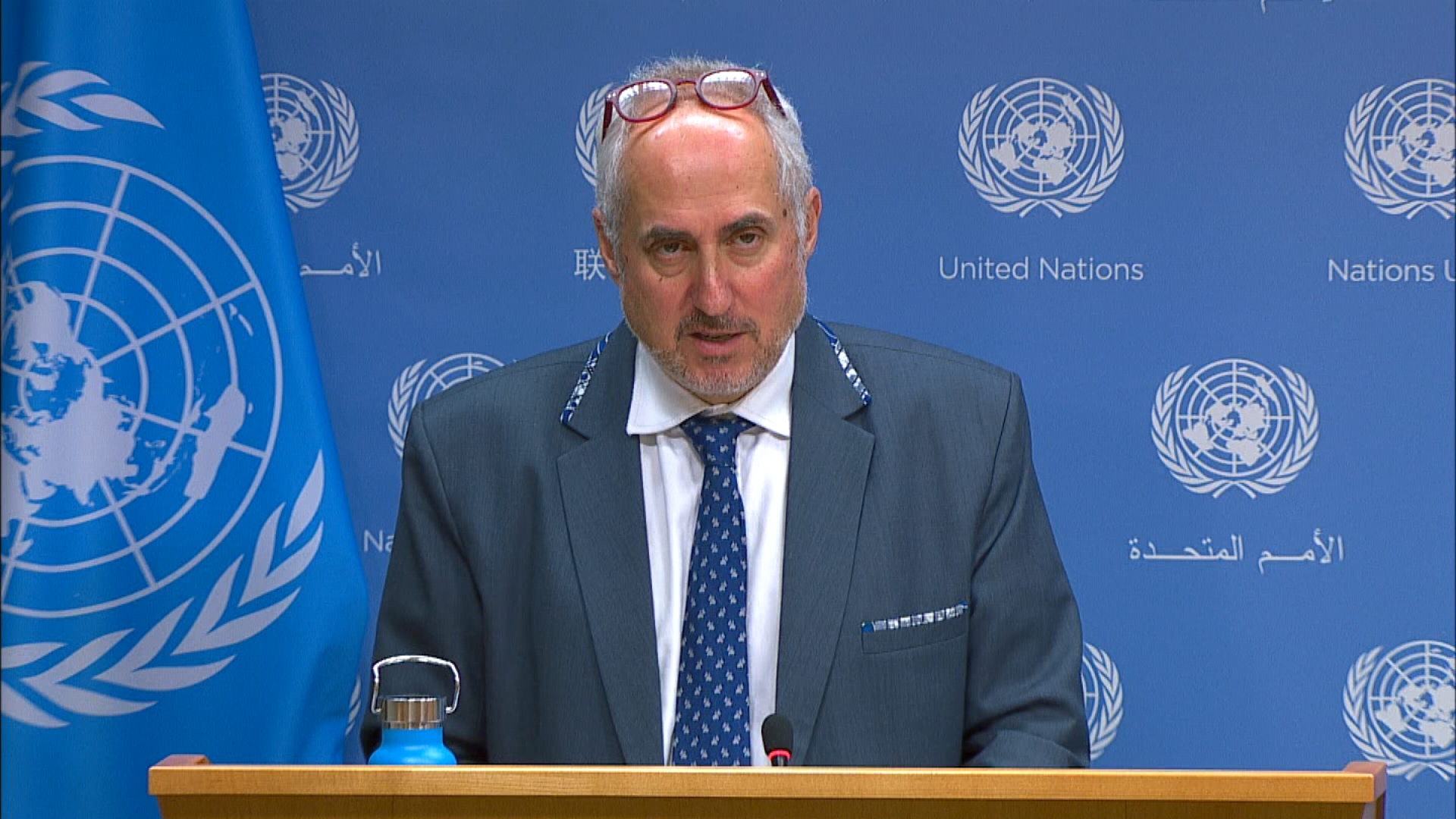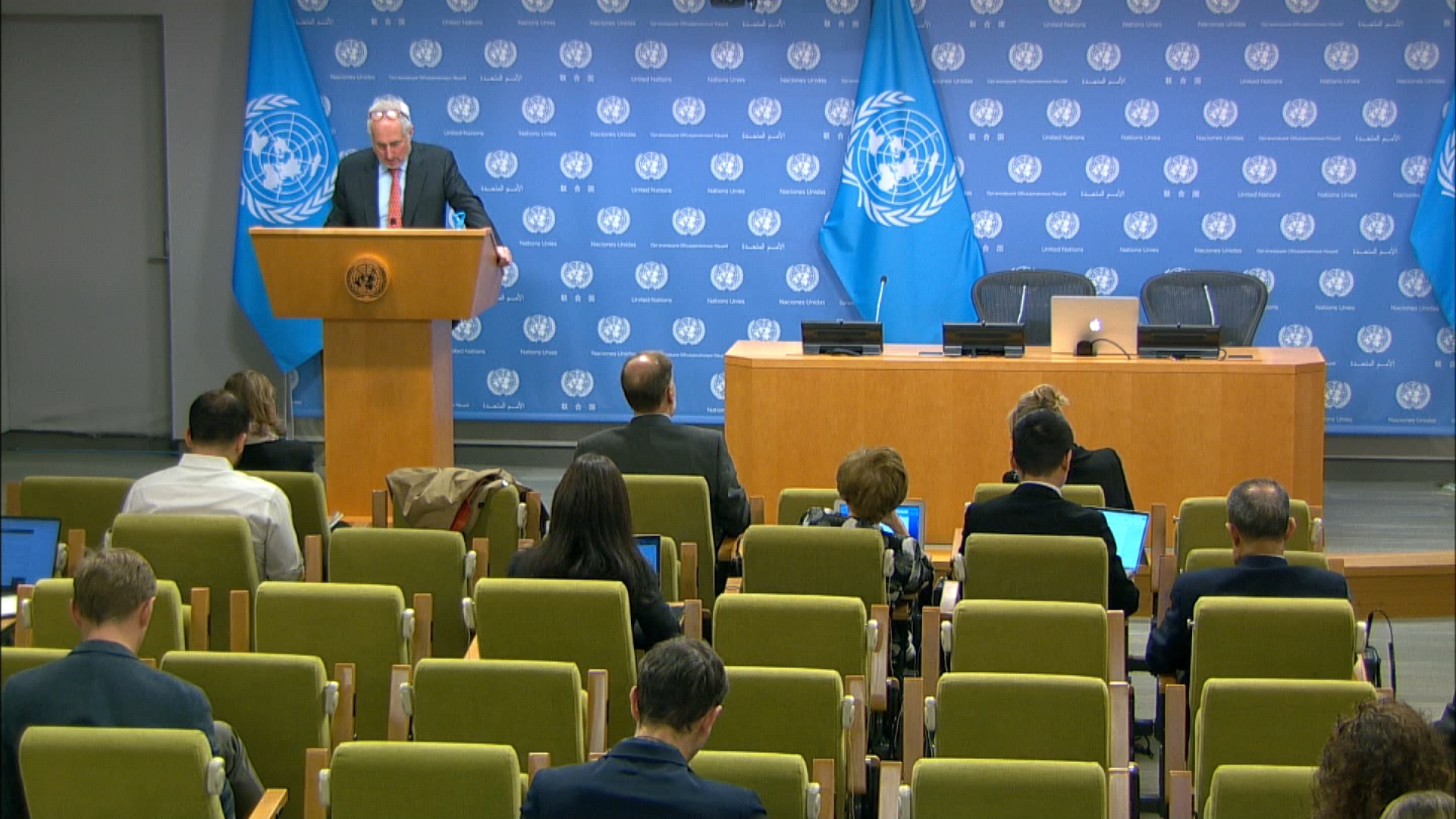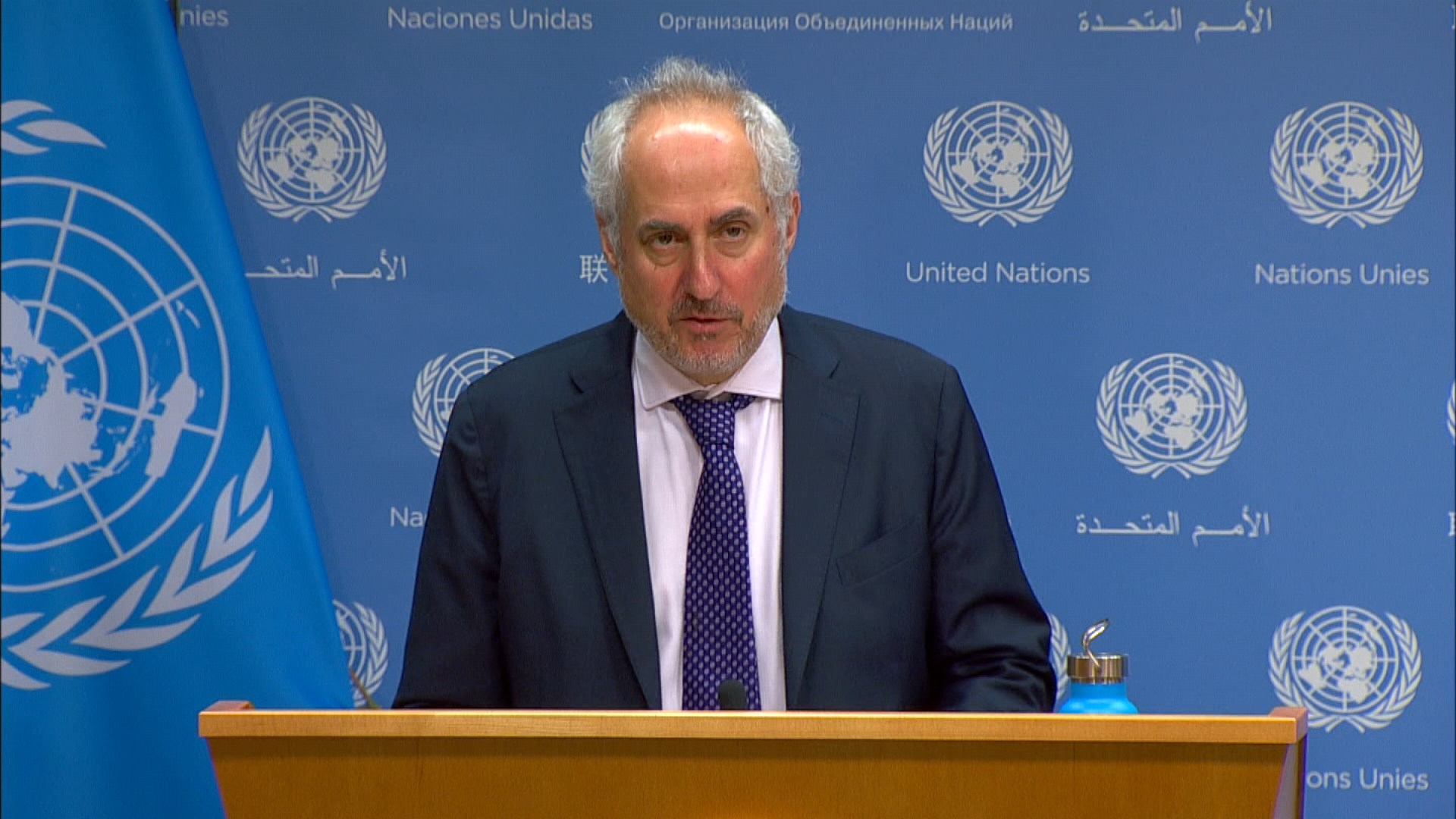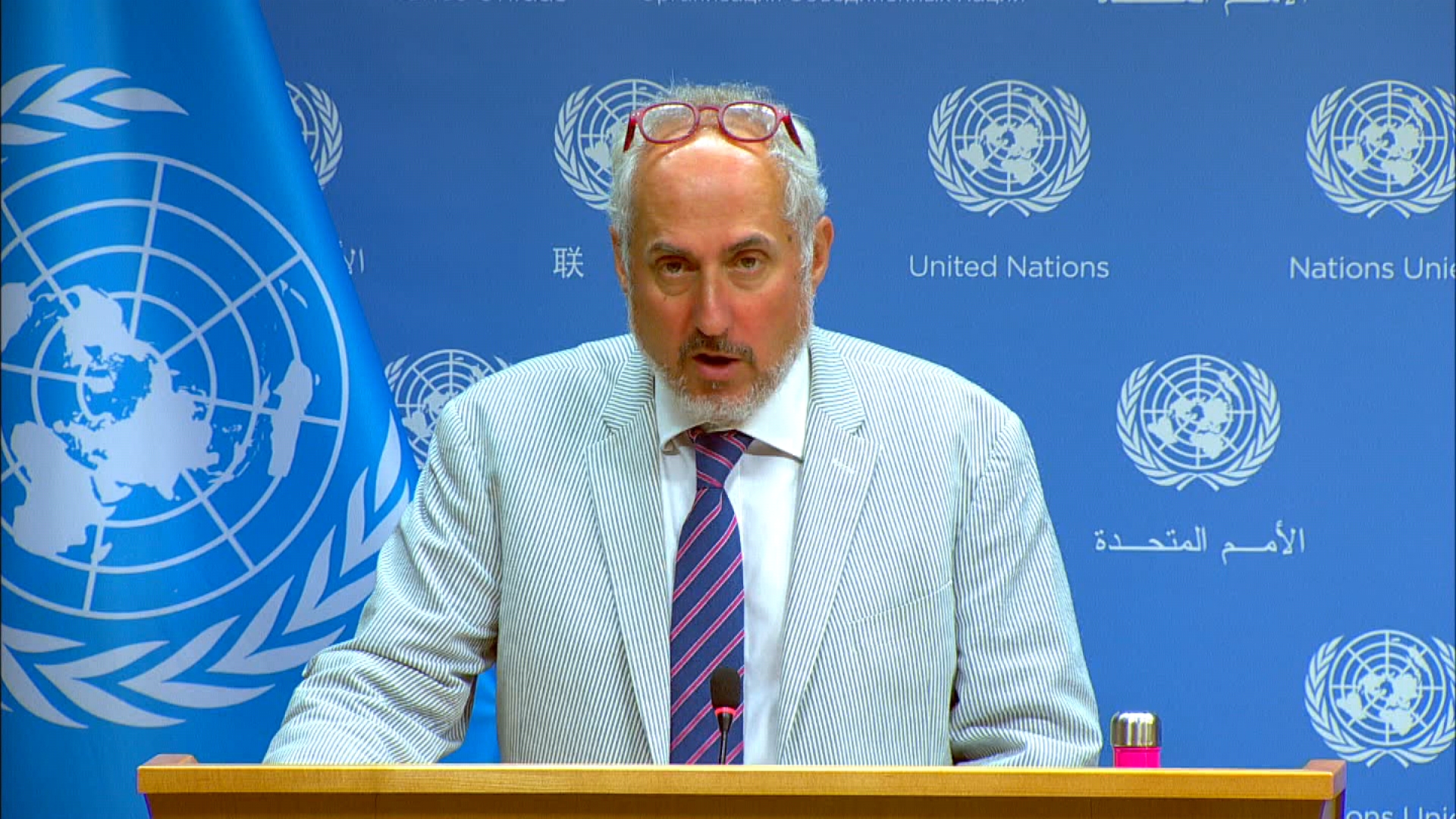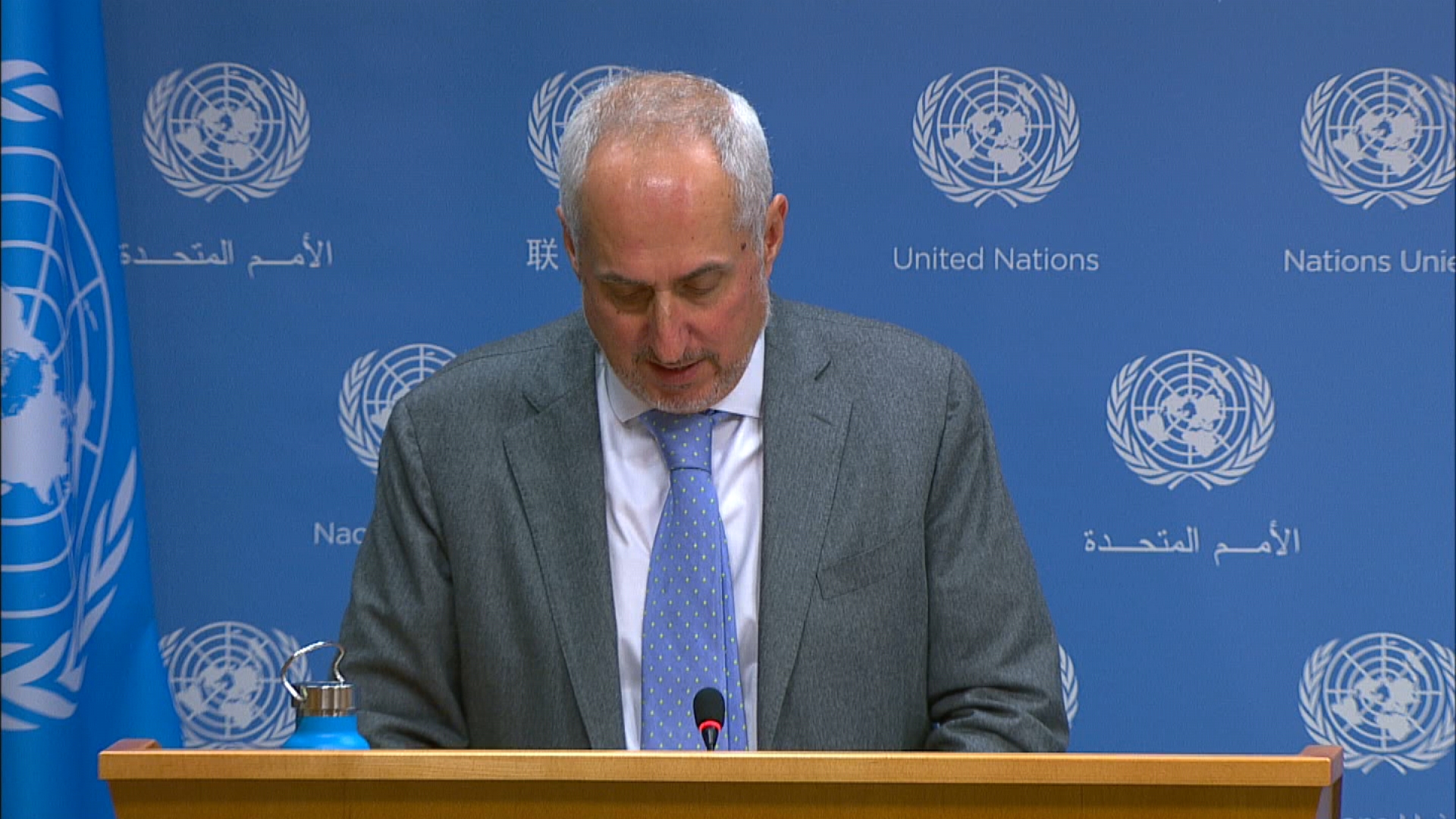Press Conferences
Briefing by Spokesperson for Secretary-General
The Secretary-General will travel on Wednesday to the Netherlands, where he will attend on Thursday the closing ceremony of the International Criminal Tribunal for the former Yugoslavia (ICTY) in the presence of His Majesty King Willem-Alexander of the Netherlands.
The Secretary-General will also meet on Thursday with Dutch Prime Minister Mark Rutte and other senior Government officials, and will have a dinner hosted by His Majesty King Willem-Alexander and Her Majesty Queen Maxima.
While in The Hague, the Secretary-General will also meet at the Peace Palace with the President and members of the International Court of Justice and with the President of the International Criminal Court. He will speak at an event on “The UN and Current Threats to International Peace and Security” at the Peace Palace, together with the Minister of Foreign Affairs, Halbe Zijlstra, and the Minister for Foreign Trade and Development Cooperation, Sigrid Kaag.
On Friday, the Secretary-General will open a Humanitarian Data Centre in The Hague.
Staffan de Mistura, the UN Special Envoy for Syria, briefed the Security Council this morning on the conclusion of the eighth round of intra-Syrian talks in Geneva. He noted the Syrian Government’s refusal to meet directly with the opposition until the Riyadh 2 declaration was withdrawn.
The Special Envoy said that the time has come for the UN to provide specific elaboration on the constitutional and electoral baskets. Mr. de Mistura proposed a series of next steps, which he said come from his intense engagement with the parties, to implement Resolution 2254.
Mark Lowcock, the Emergency Relief Coordinator, welcomed the Security Council’s adoption earlier this morning of a resolution extending Security Council resolution 2165, on humanitarian access in Syria, for an additional twelve months. He said that cross-border deliveries will remain an essential part of our efforts to meet the needs of all those across Syria who require humanitarian assistance.
He added that in besieged eastern Ghouta, increased fighting and lack of humanitarian access is rendering life unbearable for an estimated 393,000 people trapped inside the enclave.
The Office of the High Commissioner for Human Rights is deeply concerned at the recent surge in civilian casualties in Yemen as a result of intensified airstrikes by the Saudi-led coalition, following the killing of former President Ali Abdullah Saleh in Sana’a on 4 December.
The Human Rights Office in Yemen verified that 136 civilians and non-combatants were killed and some 87 injured as a result of airstrikes in Sana’a, Sa’ada, Al Hudaydah and Taizz governorates from 6 to 16 December.
The Office urges all parties to the conflict to respect their obligations under international humanitarian law, including their obligation to respect the principles of distinction, proportionality and precaution. It stresses they should take all feasible precautions to avoid, and in any event to minimise, the impact of violence on civilians.
In response to questions, the Spokesman said we note the reports that Saudi Arabia intercepted a missile fired from Yemen, and that the Houthis have claimed responsibility for its firing.
We are not able to independently confirm the reports. We condemn all attacks targeting civilians and civilian infrastructure. We urge all parties to abide by their obligations under international humanitarian law.
We call for restraint amid the mounting tensions, and reiterate that military escalation is not the solution. We urge all parties to the conflict to engage meaningfully with the United Nations to revitalize inclusive negotiations on a political settlement.
The Under-Secretary-General for Peacekeeping Operations, Jean-Pierre Lacroix, is wrapping up his visit to the Democratic Republic of Congo today.
This morning, he visited the Semuliki base in North Kivu, which was attacked on 7 December 2017 by ADF militia members, to meet with peacekeepers stationed there and to gain a better understanding of recent events.
He also visited the MONUSCO facilities at Mavivi and an operating base at Kamango before heading back to Beni.
The Under-Secretary-General travelled to the country after one of the worst attacks against UN peacekeepers in recent history, in which 14 blue helmets from Tanzania were killed and more than 40 others were wounded.
As temperatures plummet across Ukraine, the UN Refugee Agency reports that it is stepping up distributions of aid, including clothing, fuel and cash to the most vulnerable people impacted by the conflict in the East of the country. The aid items will reach some 15,300 people, who are mainly single parents, elderly, families with many children, and people with disabilities or chronic illnesses.
The situation is particularly critical in the non-government-controlled areas, where 40 per cent of households need heating fuel and nearly 90 per cent need winter clothes and insulation. In these areas, UNHCR is providing 9,000 tonnes of coal to 3,000 households and more than 7,500 pieces of winter clothing. UNHCR is also repairing 500 homes to make them suitable for the winter. The UN Migration Agency, IOM, will also deliver coal to 3,800 vulnerable low-income families in Donetsk non-government-controlled areas.
Meanwhile, in government-controlled areas, UNHCR provides unconditional cash grants to 1,000 households, and winter jackets to more than 4,700 children.
UNHCR also reports the agency is stepping up its presence in south-eastern Nigeria, to provide life-saving support to thousands of people fleeing unrest in English-speaking areas of Cameroon.
Since tensions intensified in October, joint UNHCR and government teams have registered over 7,200 arrivals in remote areas of Nigeria’s Cross River state. Thousands more are awaiting registration. Most registered asylum seekers are women and children and are hosted by local communities near the border. But as the unrest in Cameroon continues and more asylum seekers arrive, UNHCR is concerned that the local population’s capacity will soon be stretched to its limits.

